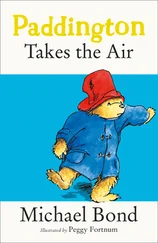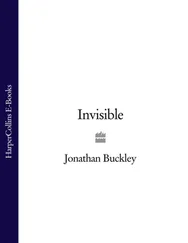The dog goes cantering off down the beach, with the limb in his jaws. ‘Come here,’ calls Benjamin. ‘Here. Here,’ he yells. Several repetitions later, Milo at last obeys, bringing the half-arm with him. ‘Drop, boy,’ Benjamin orders. ‘Drop. Drop. Drop.’ Milo cocks his head, inviting Benjamin to wrestle the thing from him. ‘Drop. For Christ’s sake, drop.’ The beast is not trained in any way. This is another of Benjamin’s multitudinous domestic crimes: he brings this flatulent mutt into the house and can’t be bothered teaching it the basics of civilised canine behaviour. A stick is needed, something he can chuck to make the dog lay down his plaything. From the ridge of tidal debris he takes a length of wood and flings it over Milo’s head. Milo watches it fly and fall to earth. A second stick is similarly spurned. ‘Drop. Good boy. Drop. Drop.’ As a rule Benjamin doesn’t swear. Benjamin swears once or twice a year, when things with Christine get out of control, but he’s almost hysterical now. ‘Drop the bloody thing. Please, please, please drop. Put it down. Down. Put the bloody thing down. Now. Drop it. Drop.’ Milo deposits the limb on the ground, gives it a shove with his snout, and grabs it the instant Benjamin makes a move.
All Benjamin can think to do is walk towards the town and hope that Milo, losing interest, will relinquish his burden en route. As fast as he can, which isn’t fast, he strides across the sand, attended by his faithful hound. Every now and then Milo deposits his portion of corpse on the ground, turns it with his nose, and takes it up again. ‘Leave it, for Christ’s sake,’ shouts Benjamin, looking the other way. The road isn’t much further. ‘Stay. Stay there,’ yells Benjamin. ‘Sit. Stay. For God’s sake, stay.’ Milo sits, and the moment Benjamin turns his back, the dog gets up again to follow in his master’s wake. They are about a quarter of a mile from the beach-grave when, out of the corner of his eye, Benjamin glimpses Milo running alongside, his head held up, with nothing waggling out of it. The half-arm has gone. Disinclined to search for it, Benjamin scans the environs quickly, then hurries towards the car.
And that’s how we found the body, in two instalments: most of it lying close to its burial place, ravaged by seagulls and platoons of crawling wildlife, in addition to the routine self-destruction of the dead; and the right forearm and hand, a few hundred yards away, lying on a cushion of seaweed and chewed to buggery.
You couldn’t have called it a face: stripped of most of its edibles, it was a bonehead with a partial cladding of jellied flesh, plus the semi-attached remnants of a beard. Putting a name to the wreckage, however, was easy. Ian, for one, needed no time to make the identification: seeing the beard and the rotten trainers and the ripped-up coat, he said straight away: ‘This will be Henry.’ Under the coat there was a rag of a T-shirt and under the rag of a T-shirt there was another rag of a T-shirt, and another one under that, half a dozen of them, all of them torn and the colour of butcher’s aprons that haven’t been washed for a year. ‘One of them will have SeaShed printed on it, I’ll bet you,’ said Ian. ‘It’s Henry.’ And when they got him on the slab and started unpeeling the wrappings, the last layer before the skin had SeaShed on it.
Some seaside towns have a dolphin that swims with the fishing boats, some have an inquisitive seal that’s famous for a summer, or a monster seagull that snatches burgers from holidaymakers’ hands. This place had Henry, the hobo of the beach. A lot of people knew Henry, by sight if nothing else. If you went down to the beach at the start of the day and waited, sooner or later you’d see Henry, guaranteed. Any day, whatever the weather, you’d see him. Rip van Winkle, he was known as, or Captain Birdseye, or Robinson Crusoe, or Howard, as in Howard Hughes.
He was slightly taller than average, about six foot, and broad in the shoulders, but skinny. He looked like a once-hefty man who’d been whittled down by years of living in the open air. When he walked his T-shirts used to flap on his body like towels on the back of a chair, and the legs of his jeans were mostly empty air. In his first summer here that’s what Henry wore, every day: a pair of jeans that ended up the colour of salt and frayed halfway up to his knees, and a T-shirt advertising some long-gone medical conference in Acapulco. When the weather cooled, Henry added another T-shirt, and he kept on adding layers until, deep into his first winter on the beach, someone gave him a second-hand overcoat, the one the corpse was wearing.
He was already old-looking when he arrived, but nobody knew how many years Henry had clocked up. Look at the face and you’d think he wasn’t far short of seventy, but living rough can easily add a decade to the appearance, so all you could say was that he was somewhere between his late fifties and late sixties, probably. Watch him walking, though, and you’d be confused, because Henry used to move across the beach at the speed of a man in his prime, a fit man at that. Like a mechanical scarecrow in overdrive he’d appear by the cliffs, and within five minutes he’d have covered half a mile of sand, as though there were somewhere he had to be, an urgent appointment at the other end of the beach. Head down, as if striding into a gale, he’d follow a line close to the water’s edge, with not a glance to right or left, even when the beach was packed, and he’d keep on going, slaloming through the children, all the way to the harbour and all the way back to Straight Point. No heatwave could slow him down and no downpour could put him off: alone on the beach there was Henry, his T-shirt plastered to his ribs, the tramp in a hurry, battering his head through the deluge. You could watch him until he was out of sight, fleeing into the rain and spray, and if you waited long enough you’d see him return, most likely, charging out of the mist, his beard like a hank of sea-soaked cloth.
Ian first came across Henry only a week after starting at the station. It was late on a Sunday afternoon in August and Ian was on the beach with that month’s girlfriend. Some kids were playing volleyball and Henry – coming from the direction of the harbour – was heading right for them, full throttle, eyes fixed on the ground. He was going to plough right into the net, thought Ian, and then, ten yards short, Henry suddenly came to a stop, an absolute standstill, as if there were a glass wall running across the beach and he’d just crashed into it. The kids had noticed him now, and they were looking at him, wondering what was up, waiting for him to move, but Henry was in a world of his own. He was like a man-sized puppet dangling from invisible strings: his mouth was hanging open, his arms dangling by his sides, and his eyes were staring over to his right, towards the town. Of course, there would have been plenty to stare at on a day like this, lots of of nicely filled swimwear, but Henry didn’t seem to be seeing any of the girls. Ian and his girlfriend were quite near, near enough to notice that Henry was wearing an Adidas trainer on one foot and a Reebok on the other, and from where they were sitting it seemed that Henry wasn’t looking at anything in particular: the eyes were wide open and aimed towards the road, but they were blank, like puppet eyes. And then he did this shudder or jump, as though someone had just clapped their hands by his ears, and he was off again, swerving round the volleyball game. Off around the headland he went, oblivious of everyone.
A few weeks later Ian encountered him again, in town this time, gazing into a shop window. Ian was having a moment with a local nuisance out on the street, about a car that’d been separated from its rightful owner, and on the other side of the road there stood Henry, reading a small ad in the window. It was only a postcard with a photo of a dinghy stuck to it, but all the time Ian and this lad were talking – a good ten minutes – Henry was studying the card. When he was done, Ian crossed over and took up a position a couple of shopfronts away. Something about this dinghy was really troubling Henry. His nose was on the glass and he was frowning as if the advert simply did not make any sense. For a couple of minutes Ian kept an eye on him. Henry didn’t budge: his face was locked in this expression of bewilderment. Finally Ian went up to him. ‘Everything all right, sir?’ he asked.
Читать дальше












